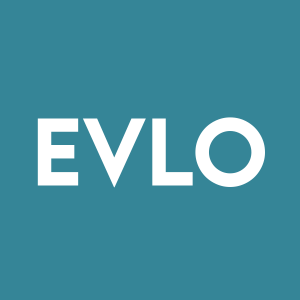Evelo Biosciences Provides Clinical Updates
Rhea-AI Summary
Evelo Biosciences (Nasdaq: EVLO) announced that the fourth cohort of its EDP1815 Phase 2 trial for atopic dermatitis did not meet its primary endpoint, prompting the company to cease further development of EDP1815 in this indication. The trial found only 37.9% of patients achieved an EASI-50 response at week 16 compared to 44.7% for placebo. However, Evelo will pivot focus towards its next-generation extracellular vesicle (EV) platform, with their first EV candidate, EDP2939, fully enrolled in a Phase 2 study for moderate psoriasis. Topline data from this trial is expected in early Q4 2023. The company is also implementing workforce reductions to prioritize investment in this new platform.
Positive
- Shifting focus to next-generation EV platform may provide higher efficacy.
- EDP2939 fully enrolled in Phase 2 psoriasis study, with data expected soon.
- Faster release formulation of EDP1815 was generally well tolerated.
Negative
- EDP1815 did not meet primary endpoint in Phase 2 trial for atopic dermatitis.
- Ceasing further development of EDP1815 could indicate challenges in pipeline.
News Market Reaction 1 Alert
On the day this news was published, EVLO declined 32.89%, reflecting a significant negative market reaction.
Data tracked by StockTitan Argus on the day of publication.
– Topline Data from fourth cohort of EDP1815 Phase 2 trial in atopic dermatitis did not meet primary endpoint –
– Company will focus on development of extracellular vesicles (EVs) –
– First EV candidate, EDP2939, in Phase 2 moderate psoriasis study fully enrolled; data anticipated in early Q4 2023 –
– Management to host conference call today at 8:30 a.m. ET –
CAMBRIDGE, Mass., April 26, 2023 (GLOBE NEWSWIRE) -- Evelo Biosciences, Inc. (Nasdaq:EVLO), a clinical stage biotechnology company developing a novel platform of orally delivered inflammation-resolving medicines acting on the small intestinal axis (SINTAX), today announced updates to its clinical programs.
“In the fourth cohort of the study of EDP1815 in atopic dermatitis, consistent with the first three cohorts, the primary endpoint was not met. The primary endpoint was the proportion of patients who achieve an EASI-50 response at week 16,” said Simba Gill, Ph.D., CEO of Evelo. “Given these results, we will cease further development of EDP1815 in atopic dermatitis, following a wind-down of the study. We will focus resources on the next generation extracellular vesicle (EV) platform and on EDP2939, our first EV candidate, currently in a Phase 1/2 study in psoriasis. The faster release formulation of EDP1815, dosed in cohort 4, was generally well tolerated. The potential impact on efficacy of the faster release formulation cannot be determined from this study.”
Dr. Gill continued, “In preclinical studies, EVs have shown substantially more potent activity than EDP1815. We believe that this, together with our previously reported positive Phase 2 clinical data in psoriasis with EDP1815, supports the potential of EDP2939, if approved, to be an attractive and unique foundational oral treatment to address all stages of psoriasis and other Th1/Th17 driven inflammatory diseases, including psoriatic arthritis, rheumatoid arthritis, axial spondyloarthritis and inflammatory bowel disease. We believe EDP2939 may have greater potential activity than EDP1815 in psoriasis, with similar tolerability. The Phase 2 study of EDP2939 in moderate psoriasis is now fully enrolled, and we expect to report topline results early in the fourth quarter of this year.”
“We are prioritizing investment in the EV platform and in EDP2939 clinical development and are reducing our workforce to save costs. I would like to express my sincere thanks to the patients and clinicians involved in our studies and to our team for advancing our programs,” Dr. Gill stated.
Clinical Updates
EDP1815 Phase 2 in Atopic Dermatitis – Topline Data
- The fourth cohort of the EDP1815-207 trial did not meet the primary endpoint of the proportion of patients who achieve an outcome of at least a
50% improvement from baseline in Eczema Area and Severity Index (EASI) score, an EASI-50 response, compared to placebo at week 16. - EASI-50 responses or greater were achieved at week 16 in
37.9% of patients dosed with EDP1815 versus44.7% on placebo in the fourth cohort. - EDP1815 faster release capsule was generally well tolerated.
EDP2939 Phase 1/2 in Psoriasis
- Enrollment is complete in the Phase 2 portion of EDP2939-101, the first study of extracellular vesicles in moderate psoriasis.
- Topline data from the Phase 2 portion of the study is expected to be reported early in the fourth quarter of 2023.
- The safety review committee reviewed data for the completed cohorts 1 and 2 of the Phase 1 healthy volunteer portion of the study and reported no notable safety or tolerability concerns.
Conference Call
Evelo will host a conference call and webcast at 8:30 a.m. ET today. To listen to the conference call by phone, participants must pre-register here. A live webcast can be accessed under "News & Events" in the investors section of Evelo’s website, https://ir.evelobio.com/news-events. The archived webcast will be available on Evelo’s website for approximately 90 days following the event.
About the EDP1815-207 Trial
EDP1815-207 is a multi-center, randomized, double-blind, placebo-controlled Phase 2 trial designed to evaluate the efficacy and safety of EDP1815 in the treatment of atopic dermatitis when dosed for 16 weeks, compared to placebo. The trial enrolled patients with mild, moderate, and severe atopic dermatitis and each of the four cohorts is investigating a different aspect of the potential of EDP1815 in the treatment of atopic dermatitis.
The primary endpoint for the trial is the proportion of patients who achieve an outcome of a
About the EDP2939-101 Trial
EDP2939-101 is a multi-center randomized, placebo-controlled, Phase 1/2 trial evaluating the safety, tolerability and clinical efficacy of EDP2939. Part A (Phase 1) of the trial is designed to evaluate safety and tolerability in human volunteers at multiple ascending doses. The primary endpoints of Part A are safety endpoints: AEs, SAEs, vital signs, safety laboratory tests, and ECGs.
Part B (Phase 2) is designed to evaluate the efficacy of EDP2939 in patients with moderate plaque psoriasis at a dose of one capsule daily. The primary endpoint is the proportion of patients who achieve an outcome of a
About Extracellular Vesicles (EVs)
Bacterial extracellular vesicles are natural lipid nanoparticles that are shed by bacteria. EDP2939, Evelo’s first EV candidate, is manufactured from the same microbial strain of Prevotella histicola as EDP1815. Preclinical studies have shown that EVs act in the small intestine to induce systemic regulatory T cells, which modulate inflammation throughout the body.
About Evelo Biosciences
Evelo Biosciences is a clinical stage biotechnology company developing a novel platform of orally delivered anti-inflammatory medicines acting on the small intestinal axis, SINTAX, with systemic therapeutic effects. The small intestine plays a central role in governing inflammation throughout the body. The Company’s product candidates are pharmaceutical preparations of single strains of microbes or their extracellular vesicles (EVs). Evelo’s vision is to create therapies that are effective, safe, well-tolerated, and affordable to improve the lives of the billions of people living with inflammatory diseases. If shown to be effective in inflammatory disease mediated by the Th1, Th2 or Th17 inflammatory pathways, these same investigational medicines could be effective in additional inflammatory diseases, such as psoriatic and other forms of arthritis, asthma, allergy, and inflammatory bowel disease.
For more information, please visit www.evelobio.com.
Forward Looking Statements
This press release contains forward-looking statements, including within the meaning of the Private Securities Litigation Reform Act of 1995. All statements contained in this press release that do not relate to matters of historical fact should be considered forward-looking statements, including statements concerning the expected timing and advancement of, and data results from, trials and clinical studies involving our product candidates; the Company’s focus on its EV platform and the clinical development of EDP2939; and the Company’s workforce reduction efforts and impacts therefrom.
These forward-looking statements are based on management’s current expectations. These statements are neither promises nor guarantees, but involve known and unknown risks, uncertainties and other important factors that may cause our actual results, performance or achievements to be materially different from any future results, performance or achievements expressed or implied by the forward-looking statements, including, but not limited to, the following: we have incurred significant losses, are not currently profitable and may never become profitable; our projected cash runway; our need for additional funding; our ability to meet our debt obligations (including restrictive and operational covenants and terms of refinanced debt); our ability to cure or satisfactorily resolve any default arising from our debt agreements; our limited operating history; our unproven approach to therapeutic intervention; our ability to address regulatory questions and the likelihood of regulatory filings and approvals; the lengthy, expensive, and uncertain process of clinical drug development, including potential delays in regulatory approval; our reliance on third parties and collaborators to expand our microbial library, conduct our clinical trials, manufacture our product candidates, and develop and commercialize our product candidates, if approved; our lack of experience in manufacturing, selling, marketing, and distributing our product candidates; failure to compete successfully against other drug companies; protection of our proprietary technology and the confidentiality of our trade secrets; potential lawsuits for, or claims of, infringement of third-party intellectual property or challenges to the ownership of our intellectual property; our patents being found invalid or unenforceable; risks associated with international operations; our ability to operate with a reduced workforce, to manage potential growth and to retain key personnel, particularly following a significant downsizing; the potential volatility of our common stock; our management and principal stockholders have the ability to control or significantly influence our business; costs and resources of operating as a public company; unfavorable or no analyst research or reports; the impact of the COVID-19 pandemic on our operations, including our preclinical studies and clinical trials, and the continuity of our business; and securities class action litigation against us.
These and other important factors discussed under the caption "Risk Factors" in our Annual Report on Form 10-K for the fiscal year ended December 31, 2022, and our other reports filed with the United States Securities and Exchange Commission, could cause actual results to differ materially from those indicated by the forward-looking statements made in this press release. Any such forward-looking statements represent management's estimates as of the date of this press release. While we may elect to update such forward-looking statements at some point in the future, except as required by law, we disclaim any obligation to do so, even if subsequent events cause our views to change. These forward-looking statements should not be relied upon as representing our views as of any date subsequent to the date of this press release.
Contacts
Investors:
ir@evelobio.com
Media:
media@evelobio.com









